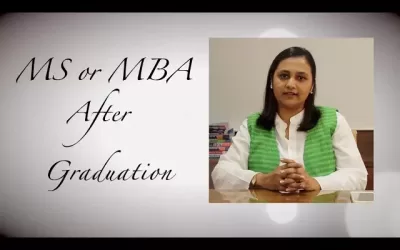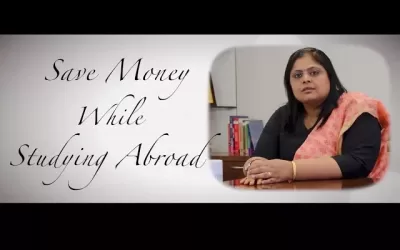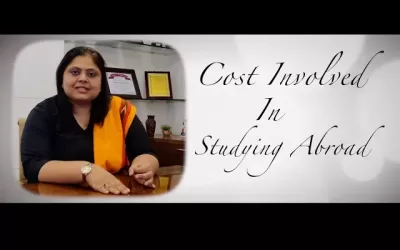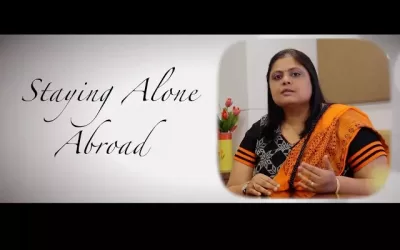Studying abroad is a thrilling experience that provides an abundance of chances for both academic and personal enhancement. It’s an opportunity to venture outside your comfort zone, fully immerse yourself in a foreign culture, and acquire priceless life lessons. This go-to guide will take you through every stage of the journey, whether you’re a college student looking to expand your horizons or a high school student daydreaming of traveling to far-off places.
Benefits of Studying Abroad
Studying abroad isn’t just about earning credits, going away from your family, or a status symbol. It’s about expanding your worldview, discovering new passions, and building lifelong memories. Here are some of the key benefits:
- Academic Enrichment: Studying abroad allows you to learn from different perspectives, expand your intellectual horizons, and experience subjects in a fresh setting. The vast array of majors, specializations, and electives, as well as the international faculty and cohort, make the whole learning experience exciting and enriching.
- Career Opportunities: Studying overseas can provide you with knowledge and skills, such as global awareness, adaptability, and cross-cultural communication, which are highly valued by employers and increase your standing in the job market.
- Personal Growth and Development: Living abroad compels you to grow as an independent, resilient person who can adapt and communicate across cultural divides.
- Cultural Immersion: Studying abroad enables you to fully immerse yourself in a new culture and better understand its customs and traditions through activities like eating local food and participating in traditional festivals.
Choosing the Right Program
Before embarking on your study abroad journey, it’s essential to research and choose the right program for you. Try answering the following questions:
- Program Duration: Do I want to spend a semester, a year or two years, or just a few weeks abroad?
- Location: I am drawn to any particular nation or area, which may include variables like language, weather, and cultural attractions.
- Academic Offerings: Does the program offer courses that align with my academic interests and goals?
- Language Requirements: Do I prefer programs taught in English, or am I comfortable studying in a foreign language?
- Financial Considerations: What is the total cost of the program, including tuition, housing, meals, and travel expenses? What’s my budget, and how do I plan to fund my studies? Should I take a loan or hope for a scholarship?
Preparing for Your Study Abroad Experience
Once you’ve selected a program, it’s time to start preparing for your adventure. This includes:
- Obtain Necessary Travel Documents: Ensure you have a valid passport and any required visas well before your departure date.
- Arrange Housing Accommodations: Research your housing options, whether dormitories, homestays, or apartments, and make arrangements accordingly.
- Manage Finances and Budgeting: Create a budget for your time abroad, including expenses for tuition, housing, meals, transportation, and leisure activities.
- Cultural Sensitivity and Language Preparation: Learn about your host country’s customs, traditions, and cultural norms, and consider taking language courses to improve your communication skills.
Navigating Through Differences:
Living and studying in a foreign country can be both exciting and challenging. Here are some tips for navigating cultural differences:
- Understand Cultural Norms and Etiquette: Take the time to observe and learn about your host country’s customs and social norms, and be respectful of cultural differences.
- Overcome language barriers: Be bold, practice your language skills, and ask for help when needed. Most people will appreciate your efforts to communicate in their own language.
- Build Relationships with Locals: Seek out opportunities to engage with residents, whether through cultural events, community service projects, or social gatherings.
- Cope with Culture Shock: It’s normal to experience culture shock when living in a new country. Stay open-minded, be patient with yourself, and seek support from fellow students, advisors, or counselors if needed.
- Adapting to New Food Habits Abroad: Adjusting to new food habits abroad can be both exciting and challenging. Embracing local cuisine while accommodating dietary preferences or restrictions requires openness and flexibility. Exploring diverse flavors and ingredients fosters cultural immersion and enriches the overall experience of traveling.
Maximizing Your Academic Experience
Make the most of your time abroad by fully engaging in your academic pursuits.
- Engage in Coursework and Academic Activities: Take advantage of unique academic opportunities, such as field trips, research projects, and guest lectures.
- Participate in Research Projects or Internships: Get practical experience in your subject of study by participating in research projects or internships with nearby companies or organizations.
- Take Advantage of Extracurricular Opportunities: Join clubs, sports teams, or volunteer organizations to meet new people and explore your interests outside of the classroom.
- Earn Academic Credit and Transfer Credits: Work closely with your academic advisor to ensure that the courses you take abroad will transfer back to your home institution and fulfill degree requirements.
- Remain open and adaptable. Welcome to new teaching styles, academic methodologies, and perspectives that may diverge from your usual experience. Cultivate a mindset of openness and flexibility to adjust to various academic settings and learning approaches.
- Maximize Academic Opportunities: Make full use of the academic resources available to you, including libraries, research centers, and language courses. Engage actively in academic seminars, workshops, and conferences to expand your expertise and connect with fellow scholars within your discipline.
Exploring Your Host Country
Studying abroad is not just about academics but also exploration and adventure. Here are some ways to make the most of your time abroad:
- Plan Travel Excursions and Cultural Experiences: Utilize the weekends and holidays to visit neighboring cities, sites, and cultural hotspots.
- Immerse Yourself in Local Customs and Traditions: Participate in traditional festivals, attend cultural performances, and learn about the history and heritage of your host country.
- Explore Historical Sites and Landmarks: Visit museums, monuments, and historical sites to learn about your host country’s rich history and cultural heritage.
- Participate in Volunteer or Community Service Projects: Give back to the community by volunteering with local organizations or participating in community service projects.
Reflecting on Your Study Abroad Experience
As your study abroad journey comes to an end, take time to reflect on your experiences:
- Document Your Experiences: Keep a journal or blog to document your thoughts, feelings, and experiences while studying abroad.
- Share Insights and Stories: Share your study abroad experiences with friends, family, and fellow students to inspire others and foster cultural exchange.
- Integrate Lessons Learned: Consider the knowledge you gained from your study abroad experience and how it will influence your future academic and personal objectives.
- Plan Future Travel or Academic Pursuits: Make the most of your time studying abroad by using it as a launching pad for future travel and study abroad possibilities.
Conclusion
Studying overseas is an excellent opportunity to broaden your horizons, experience new things, and find passions. Accepting the chances and challenges that come with living abroad will help you make lifelong memories, acquire valuable skills, and have tremendous respect for the diversity and beauty of our planet. Pack your bags, embark on this transformative journey, and prepare to witness the globe in a whole new light. Remember, studying abroad is more than just visiting new places; it’s about the rich tapestry of experiences, connections, and revelations that shape your path. Live in the moment, cherish each encounter, and let the world be your classroom.
Frequently Asked Questions (FAQs) About Studying Abroad
1. How do I choose the correct study abroad program for me?
Choosing the right program is a personal journey. Start by considering:
- Your academic goals: What subject do you want to study? Does the program align with your major or interests?
- Location: What kind of cultural experience are you seeking? Do you want a bustling city or a quieter town? Consider the climate and language spoken.
- Program type: Do you want a full degree, a semester exchange, a summer program, or an internship?
- Cost: What’s your budget? Factor in tuition, living expenses, travel, and any additional fees.
Personal preferences play a crucial role in your experience of studying abroad. Do you want a structured program or more independence? It’s your journey, so make sure to research program reviews and talk to alumni to find the best fit for you.
2. What are the benefits of studying abroad?
Studying abroad offers a wealth of benefits, including:
- Academic growth: exposure to different teaching styles, diverse perspectives, and unique courses.
- Personal development: increased independence, self-confidence, adaptability, and cross-cultural communication skills.
- Cultural immersion: experiencing new traditions, customs, food, and ways of life.
- Language acquisition: Immersion is often the fastest way to improve language skills.
- Career enhancement: A global perspective is highly valued by employers.
- Networking: building connections with people from all over the world.
- Travel opportunities: exploring your host country and beyond.
3. What academic opportunities are available when studying overseas?
Academic opportunities vary widely:
- Courses: Special subjects that your home institution does not offer, taught by local experts.
- Research: access to different resources and perspectives for projects.
- Internships: Gaining real-world experience in a foreign setting.
- Field studies: experiential learning in a new environment.
- Language immersion: courses designed to improve your language skills rapidly.
4. How can studying abroad enhance my career prospects?
Studying abroad can significantly boost your career.
- Global perspective: Employers value cross-cultural communication skills and understanding global issues.
- Language skills: Fluency in another language opens doors to international companies and opportunities.
- Adaptability: Demonstrates flexibility and the ability to thrive in new situations.
- Networking: Connections made abroad can lead to future job offers or collaborations.
- Cultural intelligence: Understanding cultural nuances is crucial in international business.
5. What should I consider when preparing for a study abroad experience?
Preparation is key to a smooth transition.
- Visa and passport: Start the application process early.
- Housing: Research options (dorm, homestay, apartment) and secure accommodation.
- Health insurance: Ensure you have adequate coverage for your destination.
- Packing: Consider the climate and cultural norms.
- Finances: Budget for tuition, living expenses, travel, and emergencies.
- Academics: Discuss credit transfers with your advisor.
6. What financial considerations should I keep in mind before studying abroad?
Studying abroad can be a significant investment. Be sure to consider:
- Tuition varies widely depending on the country, institution, and program.
- Living expenses: Research the cost of housing, food, transportation, and entertainment in your chosen location.
- Scholarships and grants: Explore options your university, government, or external organizations offer.
- Financial aid: Determine if your existing financial aid can be applied to study abroad.
- Currency exchange: factor in fluctuations in exchange rates and any associated fees.
- Budgeting: Create a detailed budget and track your spending.
- Emergency funds: Have a reserve for unexpected expenses.
7. How can I manage cultural differences while living and studying abroad?
Cultural adaptation is a key part of the experience.
- Research: Learn about your host country’s customs, traditions, and social norms.
- Open-mindedness: Approach differences with curiosity and respect.
- Flexibility: Be adaptable and willing to adjust your expectations.
- Patience: Understand that it takes time to adjust.
- Local connections: Make friends with locals to gain insights and guidance.
- Language: Learning the basics of the local language can go a long way.
8. What are some tips for overcoming language barriers in a foreign country?
Even if you’re not fluent, you can communicate effectively.
- Learn the basics: Start with greetings, common phrases, and essential vocabulary.
- Body language: Non-verbal communication is universal and can help bridge gaps.
- Translation apps: Use technology to your advantage.
- Be patient. Don’t be afraid to ask for clarification or repetition.
- Immerse yourself: Practice speaking with locals whenever possible.
- Language exchange: Find a partner to practice with.
9. How can I cope with culture shock when studying abroad?
Culture shock is normal, but there are ways to manage it:
- Acknowledge your feelings. It’s okay to feel overwhelmed or homesick.
- Connect with others: Talk to fellow students, program staff, friends, and family back home.
- Maintain familiar routines: Keep up with hobbies or activities you enjoy.
- Explore your surroundings. Get out and discover the new culture.
- Join clubs or groups: Connect with people who share your interests.
- Give yourself time. Adaptation takes time; be patient with yourself.
10. What resources are available for adapting to new food habits abroad?
Food is a big part of cultural immersion.
- Local markets: Explore the local cuisine and try new ingredients.
- Cooking classes: Learn to prepare traditional dishes.
- Restaurants: Sample the diverse flavors of your host country.
- Food blogs and guides: research recommendations and tips.
- Fellow students: Ask for advice and share experiences.
- Dietary restrictions: If you have any, research restaurants and shops that cater to your needs.
11. How can I maximize my academic experience while studying abroad?
Maximize your learning potential.
- Participate actively: engage in class discussions, ask questions, and attend office hours.
- Connect with professors. Seek guidance and mentorship.
- Explore libraries and resources. Take advantage of the academic facilities available.
- Study groups: Collaborate with fellow students.
- Attend lectures and events. Expand your knowledge beyond the classroom.
- Seek feedback: Ask for constructive criticism to improve your work.
12. What extracurricular opportunities are available in a foreign country?
Studying abroad is about more than just academics.
- Clubs and organizations: Join student groups related to your interests, from sports to cultural activities.
- Volunteer work: Give back to the local community and gain valuable experience.
- Part-time jobs: Earn extra income and practice your language skills.
- Cultural events: Attend festivals, concerts, or performances to immerse yourself in the culture.
- Sports leagues: join a team or try a new sport.
- Language exchange: Find a partner to practice with.
- Travel: Explore your host country and neighboring areas during breaks.
13. How do I ensure that the credits I earn abroad will transfer back to my home institution?
Plan to avoid surprises.
- Pre-approval: Discuss your course choices with your academic advisor before going abroad.
- Course syllabus: Obtain detailed syllabi for each course to show the content and rigor.
- Transcripts: Request official transcripts from your host institution upon completion.
- Grading system: Understand how the grading system abroad translates to your home institution.
- Credit equivalency: Your advisor can help determine how many credits you’ll receive.
14. How do you explore the host country while studying abroad?
Exploration is part of the adventure.
- Weekend trips: Take short trips to nearby towns or cities.
- Public transportation: Use trains, buses, or trams to get around like a local.
- Walking tours: discover hidden gems and learn about the history and culture.
- Bike rentals: Explore at your own pace and enjoy the scenery.
- Day trips with friends: Share the experience and create lasting memories.
- Local guides: Hire a guide for a more in-depth experience.
- Festivals and events: Immerse yourself in local celebrations.
15. How can I immerse myself in my host country’s local customs and traditions?
Go beyond the tourist attractions.
- Homestay: Live with a local family to experience everyday life.
- Language exchange: practice the language and learn about cultural nuances.
- Local markets: Shop for groceries and interact with vendors.
- Festivals and celebrations: Participate in cultural events.
- Traditional cuisine: Try local dishes and learn about the culinary traditions.
- Cultural centers: Visit museums, art galleries, and historical sites.
16. What should I do to reflect on my experience of studying abroad?
Reflection helps you make the most of your journey.
- Journaling: Write about your experiences, observations, and feelings.
- Photography: Capture moments and memories to revisit later.
- Conversations: Discuss your experiences with friends, family, and fellow students.
- Blog or vlog: Share your story with a wider audience.
- Self-assessment: Consider how you’ve grown and what you’ve learned.
17. How can I document and share my study abroad experiences with others?
Share your story to inspire and inform.
- Social media: Post photos, videos, and updates on your adventures.
- Blog or website: Create a platform to share your reflections and experiences.
- Presentations: Share your story with your school or community groups.
- Photo albums: Compile your favorite photos and memories.
- Souvenirs: Bring back mementos to share with friends and family.
18. What lessons can I integrate from my study abroad experience into my future academic and personal pursuits?
Studying abroad can be transformative.
- Global perspective: Apply your understanding of different cultures and perspectives to your studies and career.
- Adaptability: Use your newfound resilience and flexibility to navigate challenges.
- Independence: Build on your self-confidence and decision-making skills.
- Cross-cultural communication: Utilize your improved communication skills in personal and professional settings.
- Language skills: Continue to develop your language proficiency.
- Networking: Maintain and expand your international connections.
19. How can studying abroad be a launching pad for future travel and academic opportunities?
Your experience can open many doors.
- Further study: Pursue a graduate degree abroad or in a related international field.
- Career opportunities: Seek jobs with international companies or organizations.
- Research collaborations: work with researchers from different countries.
- Travel: Explore new destinations with confidence and a global perspective.
- Cultural exchange programs: Participate in programs to further your understanding of different cultures.
20. What is the significance of studying abroad beyond visiting new places?
Studying abroad is a holistic experience that goes beyond tourism.
- Personal growth challenges you to step outside your comfort zone and develop new skills.
- Cultural immersion provides a deeper understanding of different ways of life.
- Academic enrichment exposes you to diverse perspectives and teaching methods.
- Global citizenship fosters a sense of interconnectedness and responsibility for global issues.






